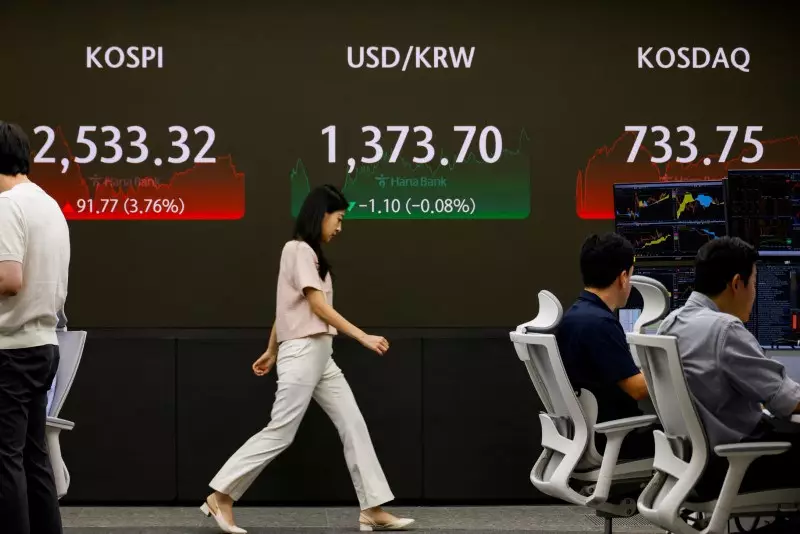South Korea’s retail investors have been showing a unique behavior lately that sets them apart from the trends seen in many other nations. Despite the recent global financial market turmoil, South Korean mom-and-pop investors are doubling down on their investments in U.S. stocks. This phenomenon is driven by factors such as the depressed value proposition of the domestic market and the allure of high-growth tech companies like Nvidia, Tesla, and Apple.
One of the primary reasons behind this shift in investment strategy is the dissatisfaction among South Korean investors with the local stock market. They have been grappling with what is known as the “Korea discount,” which reflects lower shareholder returns and depressed valuations when compared to other markets like Taiwan, Japan, and the U.S. For instance, the dividend payment to net income ratio for Korean listed companies over the last decade has been significantly lower than that of their counterparts in other countries.
Preference for Overseas Markets
The compelling numbers and growth opportunities available in the U.S. stock market have attracted South Korean investors in droves to overseas markets. Despite the risks associated with international investments, retail investors in South Korea, often referred to as “ants,” have been actively participating in markets abroad for more than a decade. The preference for U.S. stocks is evident in the massive capital flows, with South Korean retail investors pouring billions into American companies like Tesla, Nvidia, and Apple.
Implications for the South Korean Economy
The increasing outflow of funds from the domestic stock market presents a challenge to the government’s efforts to revitalize the local economy. The Yoon Suk Yeol administration’s ambitions to boost stock valuations and attract more investors have been overshadowed by the ongoing trend of capital flight to overseas markets. The planned capital gains tax, set to be implemented next year, is expected to further dissuade investors from engaging in domestic stocks.
Challenges and Opportunities for South Korean Investors
As South Korean investors navigate the complexities of the global financial landscape, they must weigh the risks and rewards associated with investing in overseas markets. The potential for higher returns and exposure to innovative industries like AI and electric vehicles present attractive opportunities for growth. However, the persistence of opaque governance structures within South Korea’s conglomerates, along with potential regulatory hurdles, may hinder the effectiveness of government-led initiatives to boost the domestic market.
Despite the challenges and uncertainties, South Korean retail investors remain optimistic about the future of their investments in U.S. stocks. The allure of high-growth companies and the promise of long-term returns continue to drive their investment decisions. As they navigate the dynamic global market conditions, South Korean investors are poised to continue leveraging overseas opportunities while monitoring developments in the domestic market.
The ongoing trend of South Korean investors favoring U.S. stocks reflects a broader shift in global investment patterns. By strategically diversifying their portfolios and seeking higher returns abroad, South Korean retail investors are demonstrating resilience and adaptability in the face of market volatility. While challenges persist, the opportunities presented by international markets offer a pathway to sustainable growth and financial success for savvy investors.

